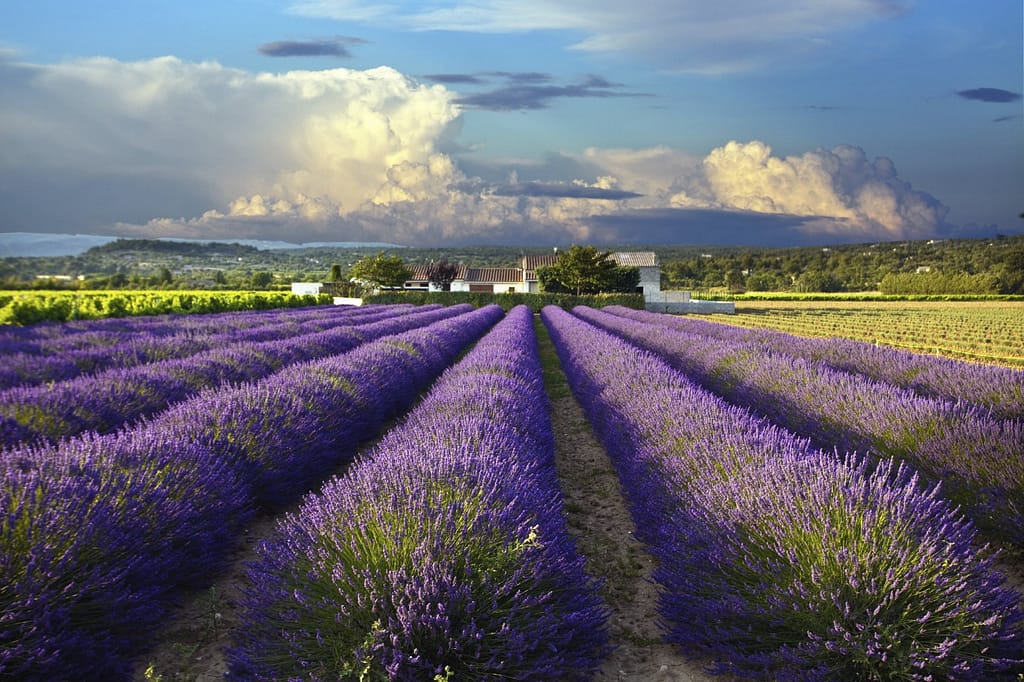With its blend of culture, heritage and sophistication, France has long been irresistible to international buyers, which has helped it become one of the most desirable property markets in the world. Aside from embracing a lifestyle that’s rich with art, cuisine and fine wine, owning a home in France is a savvy financial decision. Top locations in France are also easily accessible for travellers, with high-speed trains and international airports always nearby.
Additionally, the luxury real estate market in France is known for its stability and resilience, even during times of global uncertainty. It’s common for properties here to serve as multi-generational assets that are passed through families for decades. And in addition to long-term appreciation, strong rental demand means that investors have the opportunity to create new income streams.
With so many possibilities for living your dream life in France, success often depends on clarifying your needs and planning carefully. By approaching a purchase this important in a strategic way, you’ll secure the right home and maximise both your enjoyment and your financial return.
Table of Contents
- Know Why You’re Investing Before You Buy
- Focus on the Right Location for Your Goals
- Choose Property Types That Match Lifestyle and Investment Needs
- Plan Your Financing and Manage Currency Risks
- Understand France’s Legal and Tax Landscape
- Work With Professionals Who Put You First
- Final Thoughts: Remember That Patience Pays Off
Know Why You’re Investing Before You Buy
Before making a purchase, it’s important to understand your goals. Is your purchase for one of the following?
- A holiday home or other type of second residence
- High-yield rental income, like short-term lets in Paris or the French Alps
- Long-term family home, such as an estate or historic property
- Hobby property, such as a small vineyard
Defining your goals will shape everything that comes after, such as choosing the right destination and property type for your lifestyle. In addition to guiding you toward a specific home, your vision will also help you decide on the right ownership structure for you.
Focus on the Right Location for Your Goals
It’s always beneficial to buy property in a location that’s easy to access and close to amenities, but this is especially important if you’re buying a rental property. Also, consider when you’ll want to use your home versus when you’ll rent it out, and make sure that there’s enough tourism during those times to make it a worthwhile investment.
France’s prime destinations have their own strengths and allure:
- Paris: The city is a safe haven for investment capital, and you’ll find prime urban apartments here that are consistently in demand from buyers around the world.
- South of France / French Riviera: Resort towns like Cannes, Saint-Tropez, Cap Ferrat and Nice are synonymous with glamour (and the yachting industry), and homes here have especially strong rental potential during the busy summer months.
- Provence: Known for its country estates, farmhouses and vineyards, Provence is ideal for making lifestyle-driven purchases that promise long-term value.
- The French Alps: Charming mountain towns like Chamonix, Megève, and Courchevel have a strong dual appeal for buyers looking for both an adventurous outdoor lifestyle and seasonal rental yields.
From elegant apartments in the heart of Paris and sun-drenched villas on the Côte d’Azur to Provence’s farmhouses set amongst lavender fields and Alpine chalets in world-renowned ski resorts, there’s an outstanding locale in France to make your next home.
Choose Property Types That Match Lifestyle and Investment Needs
France offers a diverse selection of real estate, and certain areas cater to specific preferences:
- Along the French Riviera, you’ll find modern homes with incredible sea views and glistening infinity pools.
- In the French Alps, high-altitude ski chalets make perfect wintertime retreats, especially for those who love hitting the slopes early in the morning.
- Countryside chateaux and vineyard properties appeal to buyers who are looking for grandeur, heritage and prestige, as well as to be part of winemaking traditions.
- Contemporary apartments in world-famous cities create peaceful havens among the hustle and bustle of iconic locations.
Paris and the French Riviera make up the core of France’s luxury property industry. Moreover, these areas are considered blue-chip markets, meaning they’re safe and reliable for long-term investments. Provence and the French Alps, two other regions that attract investors, offer well-balanced options that satisfy aspirational living as well as seasonal rental yields.
France’s top destinations for luxury property are also influenced by international demand. Buyers from the UK, U.S. and Middle East are particularly active, driving competition for exceptional assets and helping these areas maintain premium pricing.
Plan Your Financing and Manage Currency Risks
If possible, search for a non-resident mortgage in the same area as the property. Local companies may have a wider selection of mortgages available, and you may also be able to secure a better rate. They’ll also have more knowledge of the local property investment laws. Plus, it could work in your favour to have the mortgage in France’s currency (the euro) because you’ll avoid payment issues when currency rates change.
On a similar note, you’ll have to make several transfers as you go through the different stages of buying your property. In addition to the currency exchange margin, consider the fees that the bank or exchange company charges. While you may assume that banks have the best exchange rates, you may find a better rate by working with a money transfer company. Speak with a currency specialist to determine the best option.
Understand France’s Legal and Tax Landscape
When buying property in France, it’s important to understand the primary financial and legal issues involved.
Buyers should always factor in transaction costs when budgeting for the purchase. These include notary fees, stamp duty and property taxes. Altogether, these costs can add quite a bit to the purchase price. It’s a good idea to speak with a tax advisor who’s well-versed in taxes in France, particularly in the region where you’ll be buying.
Many luxury property buyers also need to consider the French wealth tax, which applies to properties that are valued above a certain threshold. Additionally, some buyers will opt to use a Société Civile Immobilière (SCI) structure for managing their real estate, as this can make estate planning more flexible.
Succession laws are also important to understand, as they follow strict guidelines and can be difficult for international families to navigate. Planning ahead will ensure that your home will be passed to the next generation according to your wishes.
Work With Professionals Who Put You First
Buying a home in France can be complex, especially if you’re handling much of the process from another country. Every region has its own rules and traditions, and without a main database of listings, it’s impossible to know if you’re seeing all of the homes that are available to you. When you add the challenges of navigating a new culture and language, doing it all alone can become overwhelming.
Property Agents
Having a dedicated buyer’s agent greatly improves this. You’ll have access to the full real estate market, including unlisted homes you wouldn’t be able to see otherwise. Your property agent will also connect you with trusted financial and legal experts to ensure each detail is handled in your best interest. Your agent will even be able to negotiate on your behalf.
At Home Hunts, our property agents specialise in working with international clients to find and secure the best property in France. Our insider knowledge and personalised services allow us to deliver not just incredible homes, but also peace of mind.
Translators
It’s also wise to hire a translator yourself instead of using one that the seller or mortgage company suggests. You want to make sure that the translator has your best interests in mind, which means translating the documents accurately. Even if you speak the language conversationally, you could miss an important detail if you neglect to have documents translated.
Solicitors
You may also need a solicitor as you go through the buying process, and it’s best to find one with local knowledge of the area where you’re buying. However, that doesn’t mean that the solicitor has to reside there. There are plenty of firms that specialise in property abroad while also having knowledge of your home’s financial system. Just make sure that the solicitor or legal firm you work with is licensed to practice in the country where you’re buying.
Final Thoughts: Remember That Patience Pays Off
Investing in French property takes time, especially if you want the most rewarding outcome possible. Plus, between notary due diligence, inheritance considerations and legal steps, real estate transactions may move at a slower pace than you’re used to.
Additionally, discerning buyers take their time when finding a home that fits their needs. The key is in allowing the process to move along naturally instead of trying to rush it.
Buying market-leading property in France is a long-term commitment, and being purposeful and thoughtful at each step ensures capital preservation and a lasting legacy. By working with an experienced buyer’s agent, you’ll be able to navigate the market confidently, avoid common missteps and find a home that aligns with your vision.
HOMEHUNTS property agents are able to select beautiful, luxury French property based on your specific search criteria. Whether you want to live in the middle of a busy city or in a more tranquil location, there is a property in France to fit your needs. Search our website and browse our selection of luxury homes or speak directly to one of our consultants by calling +33 (0) 970 44 66 43.







